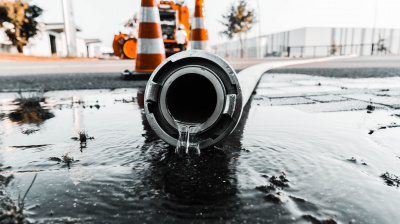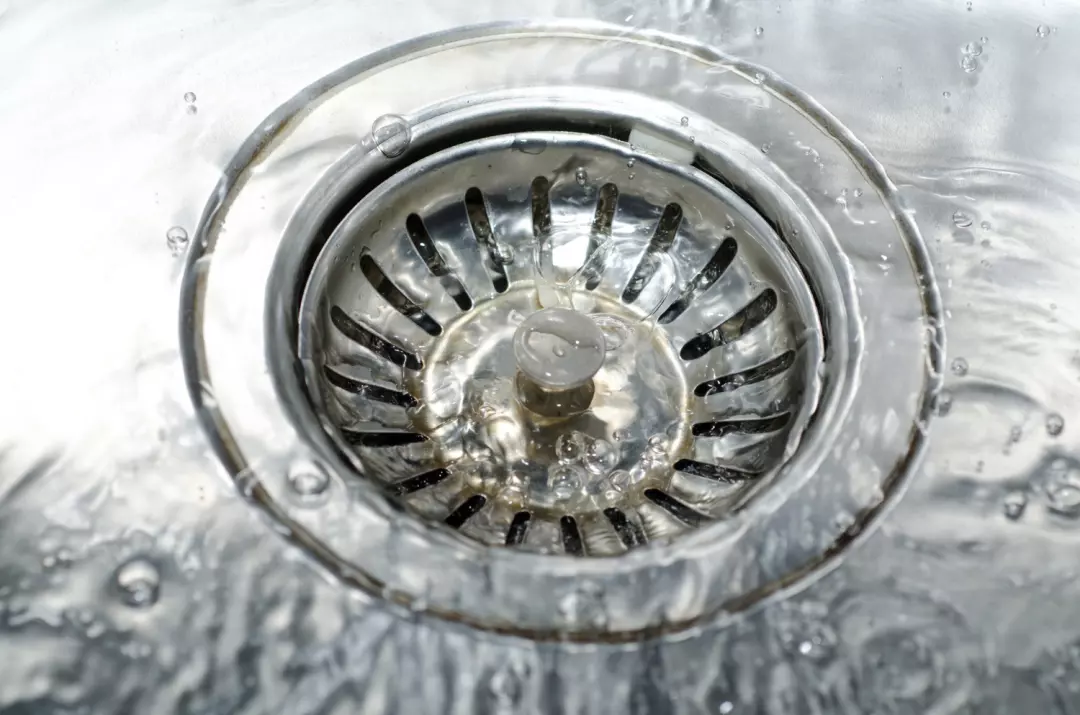What Is Drain Clearance?
The procedure of clearing a clogged or partially blocked drain is known as drainage clearance. It entails removing debris from the drains, including leaves, dirt, and other items that might assemble over time. This procedure assists in maintaining effective water flow and averts additional harm. The maintenance of a free flow of water is ensured by routine drainage clearance. It aids in preventing blocked, clogged, or damaged drains. This lessens the likelihood of obstructions, which can harm your plumbing system and perhaps necessitate repairs or replacements.
Drain clearing also aids in preventing the accumulation of germs and foul smells. Regular drain clearing also gets rid of potential nesting places for flies, cockroaches, and ants, which can cause infestations. There are many various things you may toss in the washbasin, and they all end up in the drains. The drain endures a lot on a daily basis.
They should be properly maintained on a regular basis in order for them to function effectively for a long period. To prevent any problems, you should handle the subject of drain clearing seriously. A clogged or blocked drain is a major problem, but you can prevent it by maintaining consistently clean and clear drains, which also increases the longevity of your home's complete drainage system.
Find out more about drainage clearance services
What Is The Difference Between Drain Clearing And Drain Cleaning?
The main difference between drain clearing and drain cleaning is that the former concentrates on removing obstructions while the latter employs a more thorough method to clean the pipes and get rid of all types of material. Snaking and jetting, hoover cleaning, pipe relining, hydro excavation, camera inspections and drain repairs and replacements are among the services provided by professional drainage services. Low water pressure throughout your house is an indication of a main line clog in your plumbing system. A camera is frequently required to view the issue before you act.
You need expert assistance for obstructions that are too deep in your pipe to be snaked or plunged. A qualified plumber has the equipment necessary to remove the obstruction without causing harm to your pipes. A camera diagnoses the issue, much like with the main drain block, and the plumber then removes the obstruction using the proper equipment. Drain clearing is sometimes all that is required. However, in some circumstances, drain cleaning is required to stop obstructions from reappearing rapidly. The issue may be considerably worse in instances of collapsing pipes or tree root invasion.
Drain cleaning, as opposed to drain clearing, deals specifically with surface-level obstructions and abandoned detritus. Baking soda, borax, or washing powder are examples of at-home cleaning solutions that can only get the top of the drain clean. With their specialised gear, however, experienced plumbers can do deeper cleaning.
A decent snake of your drain clears surface-level obstructions, but it does not reach deeper obstructions. Only with expert assistance can your drain be totally cleared. Plumbers have the right equipment to clear substantial obstructions. Following the drain cleaning, a powerful water jet leaves your pipes spotless and, most importantly, unscathed.

Need assistance finding drainage clearance near you?
Get a QuoteWhy Is Drain Clearing Important?
Since it helps to avoid severe plumbing catastrophes like overflowing drains, basement floods, and soil erosion, drain cleaning is crucial. Drains that are clogged or obstructed can also raise the danger of bacteria and mould growth. Drain clearing makes sure that none of these issues arise, safeguarding your house and preventing expensive repairs. Fewer obstructions are the most evident advantage of routine drain cleaning. Regular clearing means fewer obstructions, whether it is in a kitchen sink, shower drain or washing machine drainage line.
Despite the best efforts of the homeowner, a lot of items end up in the drains. When it comes to clogging up bathroom drains, hair is a huge offender. Kitchen drain blockages are frequently brought on by tough vegetable skins, coffee grinds, and grease. The build-up in the drain cannot be avoided, not even by the most diligent person. Additionally, clear drains lessen the possibility of costly repairs. After all, one of the most frequent reasons for expensive home repairs is clogged drains.
Signs You Need Drain Clearing
The most typical indications that your drains need to be cleaned include gurgling sounds coming from the toilet or sink, slow-moving drains, a bad smell coming from the plumbing, water backing up from the drains and standing water around the outside of your home.
If you observe any of these warning signals, you should get in touch with a reputable drainage firm right once to have your drains examined and cleaned. When you wash your hands or brush your teeth, does your washbasin fill up? It's an indication that something foreign or greasy has entered the pipe or drain, such as hair, soap, or grease.
The obstruction typically isn't very deep if only one washbasin is impacted, but the drain should still be cleansed right away. The clog may be deeper in your plumbing or in the sewer line if many washbasin drains are taking a long time to empty. A drainage pipe is clogged if water remains in your washbasin, shower or washing machine. It raises the possibility of a backup, flood, or pipe damage. Calling a plumber as soon as possible if there is standing water around a toilet's base or a drain in the basement.
Who Is Responsible For Repairing and Clearing Drains?
In the UK, it is often the property owner's obligation to repair and maintain drains and sewers. The majority, nevertheless, are now cared for by neighbourhood water corporations. Public sewers and lateral drains - those connecting a property to the sewer - must be inspected, cleaned, and maintained by water utilities. If you own a property and a private sewer, you are liable for the expense of upkeep and repairs. Each owner is jointly liable for these expenses if the sewer serves multiple properties.
If a private sewer or lateral drain is not kept up with, the environmental health department of your local government may issue a court order requiring you to fix it or unclog it. The local government has the right to do the job themselves and charge you for it if you don't finish it within the time frame they've given you. You can ask your local water provider who is in charge of your drains if you're not sure. In conclusion, clearing a partially or completely clogged drain is known as drainage clearance. It promotes effective water flow and stops additional harm from happening.
Drain clearing differs from drain cleaning in that the former focuses on removing obstructions while the latter takes a more thorough approach to cleaning the pipes and removing all manner of debris. It's crucial to keep drains free to avoid catastrophic plumbing catastrophes like backed-up drains, basement flooding, and soil erosion as well as microbiological development like mould and germs.
Although water utilities are in charge of inspecting, cleaning, and maintaining public sewers and lateral drains, it is often the responsibility of property owners to repair and maintain drains and sewers.
In this article:

